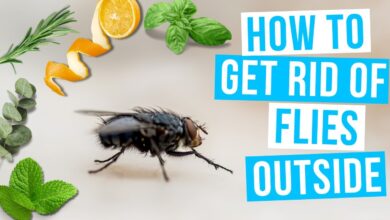Much harm is not done if you soak your strawberries in vinegar. Vinegar is known to kill fungi and bacteria. If you need firm strawberries then soaking is not necessary. Keep in mind that vinegar also softens food items so excess soaking may leave you with saggy and extra soft strawberries. You may even taste vinegar when you bite into the berry as the vinegar may linger. It’s best to wash right away, strain, and enjoy.
HOW TO WASH ORGANIC STRAWBERRIES
Get to know your berries. Check your source if the berries are handpicked from a local strawberry farm. if so be the case your berries may not need excessive washing after all. These types of berries most times are not packed with pesticides and harmful chemicals for preservation. Washing these types of strawberries is quick and easy.
Instructions…
- Place the berries in a colander
- Turn on the tap on cool water
- Hold the colander underneath the running water for 3 minutes
- Dry the strawberries either by laying them out on a sheet of paper towel or drying them with a clean dishcloth.
HOW TO WASH STRAWBERRIES WITH SALT
Washing strawberries with salt is another good way of ensuring your berries are clean. This simple method is the opposite of the vinegar method. Here are the steps…
Step 1. Add 1 teaspoon salt to every 1 cup cool water
Step 2. Stir the water to ensure the salt is evenly distributed
Step 3. Place the berries into a clean empty container
Step 4. Pour the salty water out on the berries, allowing 2 ounces of the salty sediment to remain in that container. Some salt may settle to the bottom. Pouring direct salt grains on the berries may spoil the taste.
Step 5. Allow the berries to sit for 2- 3 minutes, Rinse in a colander with cool fresh water, and your berries are ready to be eaten.
HOW TO CLEAN STRAWBERRIES WITH HYDROGEN PEROXIDE
Hydrogen peroxide is popularly known for oral care, bleaching hair, and a household antiseptic. However, hydrogen peroxide can also be used to kill bacteria in foods. Some of these bacteria are E. coli, salmonella, and last but not least listeria. A little hydrogen peroxide goes a far way in removing dirt built on fruits and vegetables and also eliminating pesticides. To clean your strawberries with hydrogen peroxide follow these simple steps…
Instructions…
Step 1. Dilute 1/4 cup 3% hydrogen peroxide into 4 cups cool water
Step 2. Add the strawberries and swish around for 2 minutes
Step 3. Place the berries into a colander strainer and hold them under the tap for rinsing. Avoid using hot water as this will sag the berries.
CAN DISH SOAPS BE USED TO WASH STRAWBERRIES
Dish soap is not made for human or even animal consumption. Using any soap to wash fruits and vegetables may cause serious digestion problems. As a matter of fact, dish soaps are not proven to have antibacterial properties. Dish soaps are known for cutting grease on dishes. Keep in mind that whatever you used to wash your food most time a small percent may linger after washing. Imagine if this is dish soap! The answer is… dish soaps are not a recommended source for washing fruits/ vegetables.




